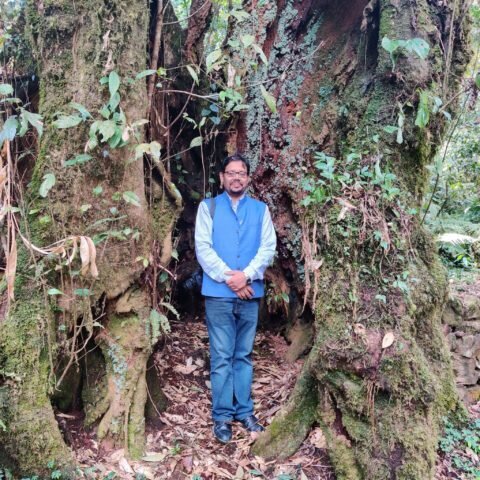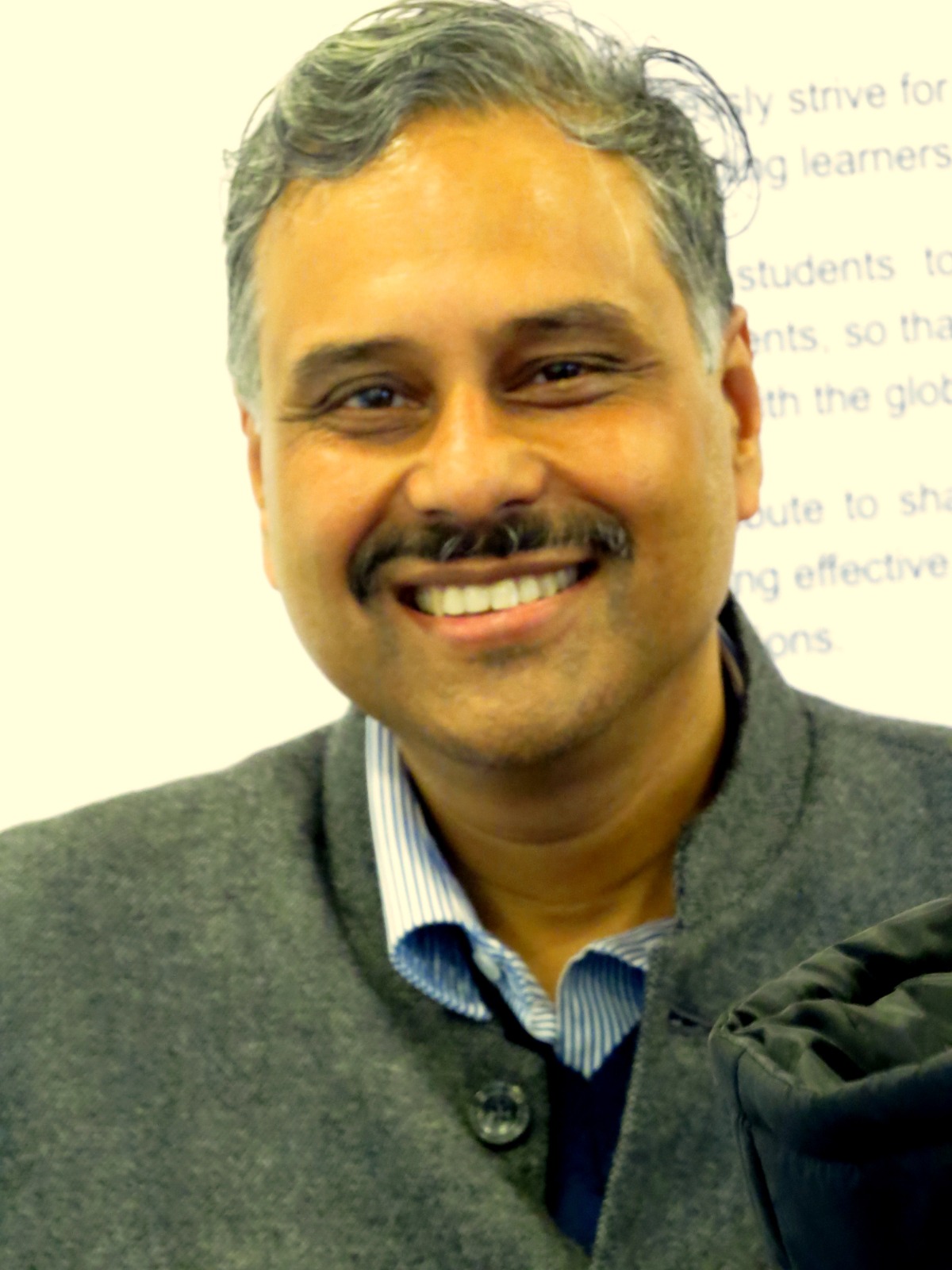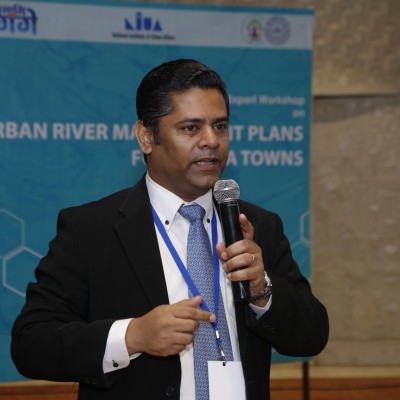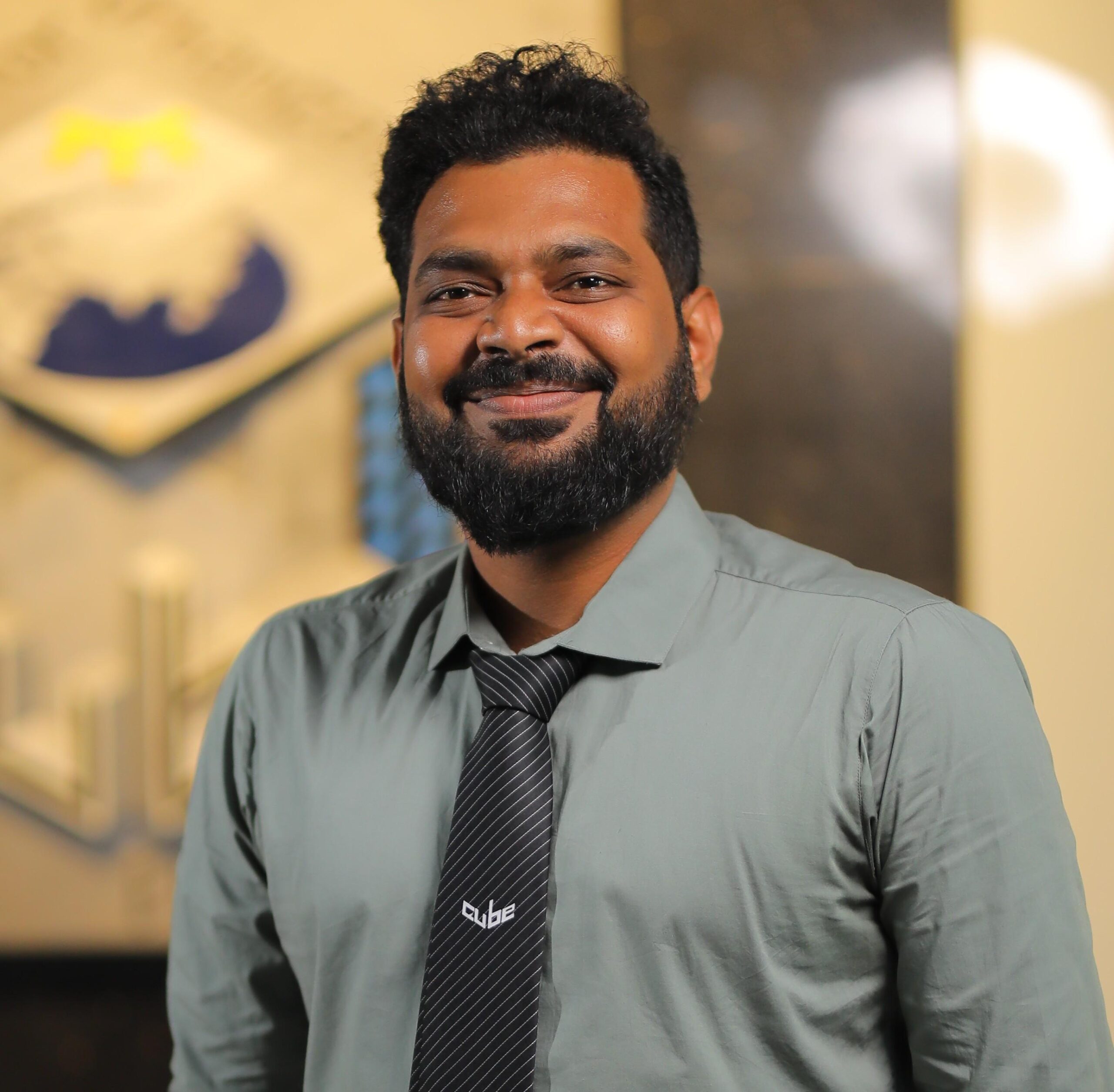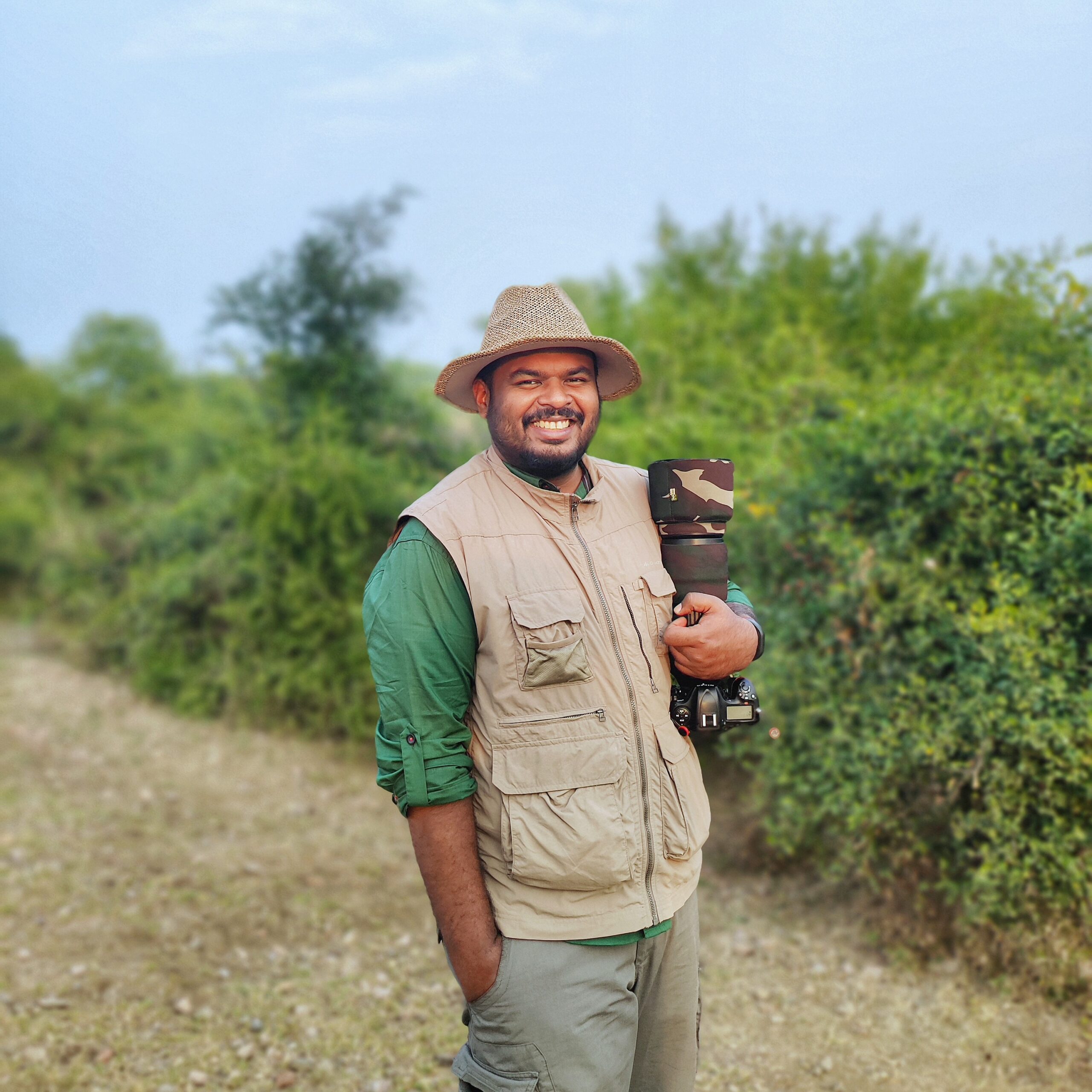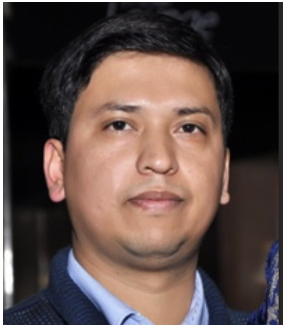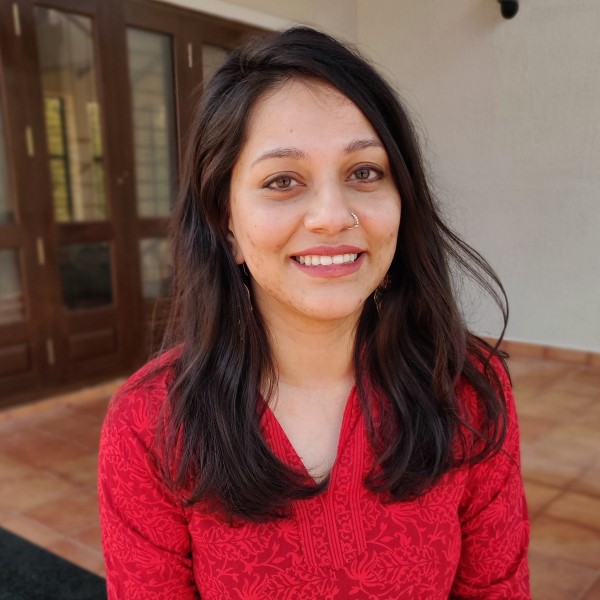Our Team
Steering Committee
The Steering Committee sets out the larger direction in which the Forum should proceed in order to achieve the collective vision set by the Forum. It acts as an apex body wherein strategies and deliverables of the task forces formed within the Forum are reviewed and finalised. The Steering Committee comprises of member representatives from NIUA, WRI India, and all the core partner organizationds.
Ajita Padhi
Ajita Tiwari Padhi in her role as the Senior Specialist-NbS and Resilience leads India Climate Collaborative's sector work on Land use and resilience. She comes with over 17 years of experience in the climate change, sustainable development, policy and research space. Specifically, she has worked very closely on low carbon development and resilience building programs with CSOs, indigenous communities, think tanks and local governments across the country. Ajita has studied marine sciences and holds a PhD from the Tata Institute of Social sciences.
Jaya Dhindaw
Jaya Dhindaw is the Executive Director, Sustainable Cities; Director at WRI India Ross Center. She is based in Bangalore and provides strategic leadership to all Urban Planning initiatives across WRI India, managing relationship with key partners, stakeholders and the global WRI network. Jaya leads the practice’s work on advancing goals for sustainable development in Indian cities to enable and influence knowledge building and on-ground impactful interventions through instruments such as Transit Oriented Development and Structural Reforms.
Jaya has over 16 years of global experience in a diverse set of roles within the domain of Sustainable Urban Planning. Prior to joining WRI India, Jaya was Lead Urban Planner with the Center for Infrastructure, Sustainable Transportation and Urban Planning (CiSTUP) at the Indian Institute of Science, Bangalore, where she engaged with government stakeholders to look at innovative strategies for growth and development in cities by way of ordinance restructuring along with policy and implementation tools. Here, Jaya was also involved with the Goethe Institute’s Youth Program on Sustainable Development as an invited expert, which was awarded project of the UNESCO world decade on Education for Sustainable Development.
Jaya worked for 8 years with the City of Charlotte, North Carolina, first in the Transit Department as part of the team that put in place the 9.6 mile maiden light rail line in the city and then with the Planning Department as Planning Coordinator for the Urban Design section, where she led several mission critical strategic planning and economic development initiatives for neighborhoods and mentored the execution of many high-profile proposals to help further the city’s economic and urban development goals. Jaya also worked with Neighborhood Concepts, a planning & design consulting firm in Charlotte and with the Metropolitan Growth Alliance, a non-profit in Cincinnati, Ohio.
Jaya earned her undergraduate degree in Architecture from the University of Pune and a Master’s degree in City Planning, from the Indian Institute of Technology, Kharagpur. She also studied Community Planning with a focus on Environmental Planning from the University of Cincinnati. Jaya serves as Managing Associate Editor for the Journal of Sustainable Urbanization, Planning and Progress by Whioce Publishing, Singapore.
Ritesh Kumar
Over the last two decades, Dr Kumar has led integrated management planning for several wetlands in South Asia region, and coordinated multidisciplinary projects on wetlands assessment, ecosystem services evaluation, water management, sustainable livelihoods, disaster risk reduction and climate change adaptation. Dr Kumar has been part of several policy making processes related to wetlands in India, key being a part of the drafting team of national regulation on wetlands, the National Biodiversity Targets under the Convention of Biological Diversity and indicators for Sustainable Development Goals. He advises several state governments on policy and management aspects of wetlands.
Dr Kumar has been involved in several global, regional and national assessments. These include being a Lead Author of Global Wetlands Outlook (2018), as Coordinating Lead Author of the IPBES Regional Assessment on Status of Biodiversity and Ecosystem Services for Asia and Pacific (finalized in 2019), and the methods assessment of multiple values of nature (ongoing).
Dr Kumar has been closely associated with Ramsar Convention processes. As an expert member of the Convention’s Scientific and Technical Review Panel for three trienniums, he has worked on various themes including wetlands and poverty reduction, ecosystem services, disaster risk reduction, health, agriculture, tourism and others. Notable contributions include drafting Resolution X.28 on Wetlands and Poverty Reduction, the Changwon Declaration on human well-being and wetlands, policy briefs on multiple values of wetlands and wetlands and disaster risk reduction. He is also an associate editor of ‘Marine and Freshwater Research’ a multidisciplinary journal publishing original research and reviews on all aquatic environments and subject areas.
Sudipto Chatterjee
Sudipto Chatterjee, presently works as Associate Director (Programs), The Nature Conservancy. Prior joining NCIS he was Associate Professor at, TER School of Advanced Studies where he teaches Biodiversity and conservation and implements national and regional conservation projects. He has been working for conservation of forests and biodiversity since 1992. At TERI SAS he has been the Head of Dept of Natural Resources and presently heading the Coca Cola Dept of Regional Water Studies and has supervised Doctoral students. His research work has been published in international and national journals. He has worked as Heads of Forests Conservation Programme of WWF-India and Biodiversity and Conservation programme of Winrock International India.
He served as Team Member Biodiversity in the Technical Facilitation Organization for the Sustainable Ecosystem and Land Management Country Partnership Project at the Indian Council of Forestry Research and Education, Govt. of India. He worked as Heads the Communities and Biodiversity Division and Forests and Carbon Division of Wildlife Trust of India (WTI). He worked as Biodiversity and Protected Areas Management Specialist in Sikkim Biodiversity Conservation and Forest Management Project, Govt. of Sikkim for the Louis and Berger Inc. He received the Whitley Associate Award, 2009 from Whitley Fund for Nature, UK for conservation of Rhododendrons in Eastern Himalaya. For TERI SAS he received the United Nations Global Compact Initiate (UNGCNI) Award for Forest Landscape Restoration in reclaimed coal mines of Dhanbad with support of Ministry of Coal , Govt. of India in 2019. He was the Co Lead in South Asia Nitrogen Hub (SANH), initiative studied the impacts of pollution on forests of Himalaya (India, Nepal, Bhutan and Sri Lanka). He was a team member for the terminal evaluation of Forest Plus project supported by USAID. He is a member of the National Academic Committee of Dept. of Science and Technology, Govt of India for the Children’s Science Congress.
Victor Shinde
Victor R. Shinde leads the water and environment portfolio at the National Institute of Urban Affairs (NIUA). In this position, he has spearheaded two national level initiatives for managing urban rivers. The first is a framework called ‘Urban River Management Plan’ that requires river cities to take actions against a common ten-point agenda to ensure the holistic rejuvenation of rivers. The second is a strategic guidance document for preparing river-sensitive Master Plans. He has also led the development of the Environent and Infrastructutre chapters for the next Master Plan for Delhi (2041).
He has over 17 years of experience in diverse domains such as urban environmental management; integrated water resources management; water security enhancement; climate change adaptation in water sector; flood risk assessment; and M&E frameworks for water and environmental sector.
Prior to joining NIUA, he worked as a scientist and technical expert in nine countries in Asia and Africa-Bhutan, India, Japan, Mauritius, Philippines, Seychelles, South Korea, Thailand, and Vietnam. He has carried out joint research and development projects with several international organizations such as APN, CTCN, DAAD, GIZ, GWP (Thai Chapter), IWMI, UNDP, UN Environment, USAID, US Army Corps of Engineers. His prior achievements include developing a performance indicator system for assessing the efficiency of small water utilities in Japan; devising a framework to quantify urban water security and demonstrating its application in India, Thailand and Vietnam; and designing an assessment system for holistic measure of the river health for rivers in Thailand.
A recipient of several awards and scholarships, he has 35+ publications as journal articles, books chapters, conference papers, and knowledge products.
Victor has a PhD in Urban (Environmental) Management from Kyoto University Japan, Masters in Water Engineering and Management from the Asian Institute of Technology Thailand, and Bachelors in Civil Engineering from Karnatak University India.
Knowledge Task Force
Knowledge on planning, execution and monitoring of Nature-based Solution across urban India is still limited. The Knowledge task force aims to address this gap by creating a variety of relevant Knowledge products including compendiums, toolkits, reports and other forms of resources on urban NbS. The resources will cater to the requirements of multiple stakeholders including government, policy makers, communities, and implementation organizations.
Currently, the Task Force is creating an online repository of case studies on urban NbS. The idea is to create a live collection of case studies covering wide range of successful urban NbS implementations across multiple geographies within India, which will serve as references for public and private institutions who are looking forward to undertaking similar interventions.



